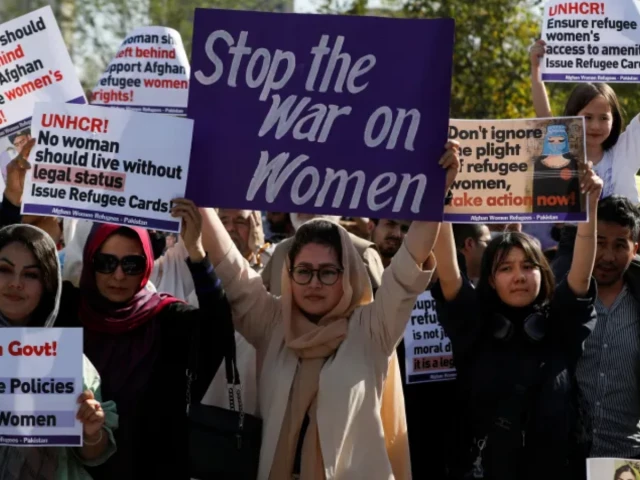More than 15,000 cases reported between January and June 2025, including 51 kidnappings and 24 incidents of domestic violence
At least 85 women face violence daily in Punjab, with an average of nine women being sexually assaulted, according to a biannual report released by the Sustainable Social Development Organization (SSDO).
The findings, based on Right to Information (RTI) data collected from the Punjab Police, highlight worrying trends in gender-based violence, with over 15,000 cases reported between January and June 2025.
The Violence Against Women in Punjab 2025 factsheet documents major categories of offenses including sexual assault, kidnapping, domestic violence, honor killings, trafficking, cyber-stalking and sexual harassment. The report uses standardized rates per 100,000 women aged 18 and over to allow comparisons by district.
Read also: The serious reality of violence against women in Pakistan
According to the data, the first half of 2025 saw an average of nine sexual assault cases, 51 kidnappings and 24 domestic violence incidents in the first half of the year.
Lahore is the worst-affected district, topping the list in sexual assault (340 cases), kidnapping (3,018 cases) and domestic violence (2,115 cases). The provincial capital also recorded one of the highest number of honor killing incidents.
Other districts with persistently high incidence rates include Multan, Gujranwala, Sialkot, Kasur, Toba Tek Singh and Nankana Sahib.
When it comes to cyberbullying, only five districts – Okara, Sheikhupura, Layyah, Pakpattan and Gujrat – have reported cases. The SSDO attributed the low number of reports to unequal access to digital complaint systems and significant under-reporting. For trafficking-related offences, Muzaffargarh and Pakpattan recorded the highest figures.
The report raised serious concerns about missing data in several districts. Bahawalnagar, Bahawalpur, Chakwal, Chiniot, Dera Ghazi Khan, Faisalabad, Hafizabad, Narowal, Rahim Yar Khan, Rajanpur, Rawalpindi, Sahiwal and Sargodha have not submitted the required information despite repeated directions from the Punjab Information Commission.
The SSDO noted that law enforcement agencies are legally required to publish these records under the RTI Act, and the absence of data undermines the transparency and accuracy of provincial records on violence against women.
Read: Court considers merging PECA cases against Shandana Gulzar
As SSDO stated, the increase in reporting reflects an improvement in performance. He warns that large data gaps create misinformation, fuel public distrust and obscure the true scale of the crisis.
The report adds that despite some progress, structural challenges continue to hamper justice, deterrence and the protection of survivors.
Describing the situation as “alarming”, the SSDO called for coordinated action to strengthen reporting and referral systems, improve the investigative capacity of the police, ensure speedy legal proceedings and expand support services for survivors, including shelters, legal aid and psychosocial assistance.
The organization emphasized that only transparent data, responsive governance and community-led awareness initiatives can enable Punjab to effectively combat gender-based violence and safeguard the rights, safety and dignity of women across the province.




